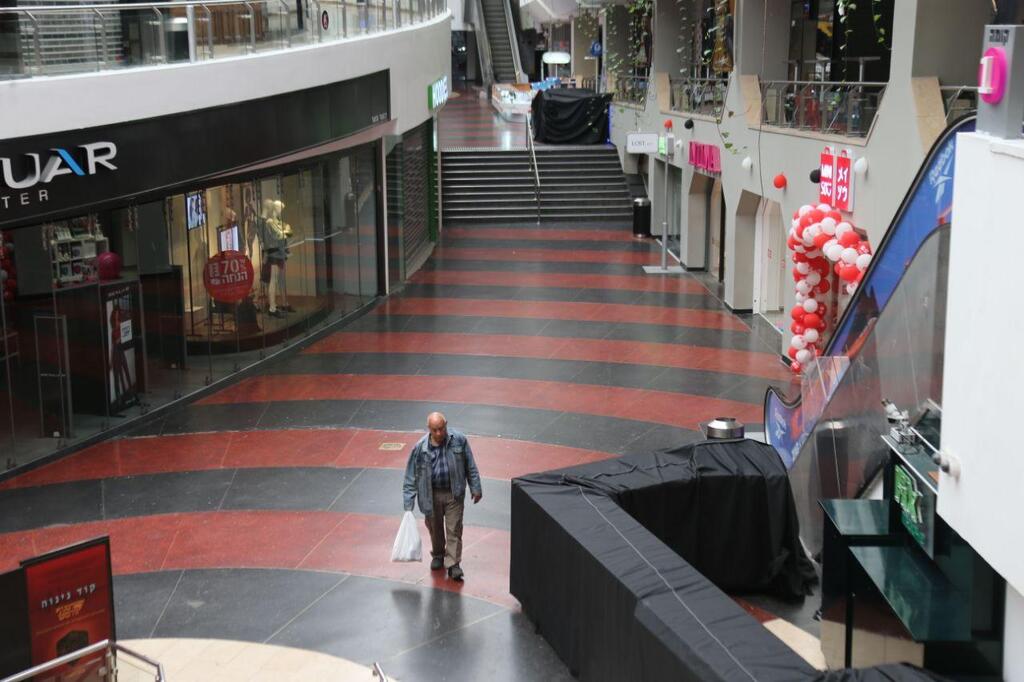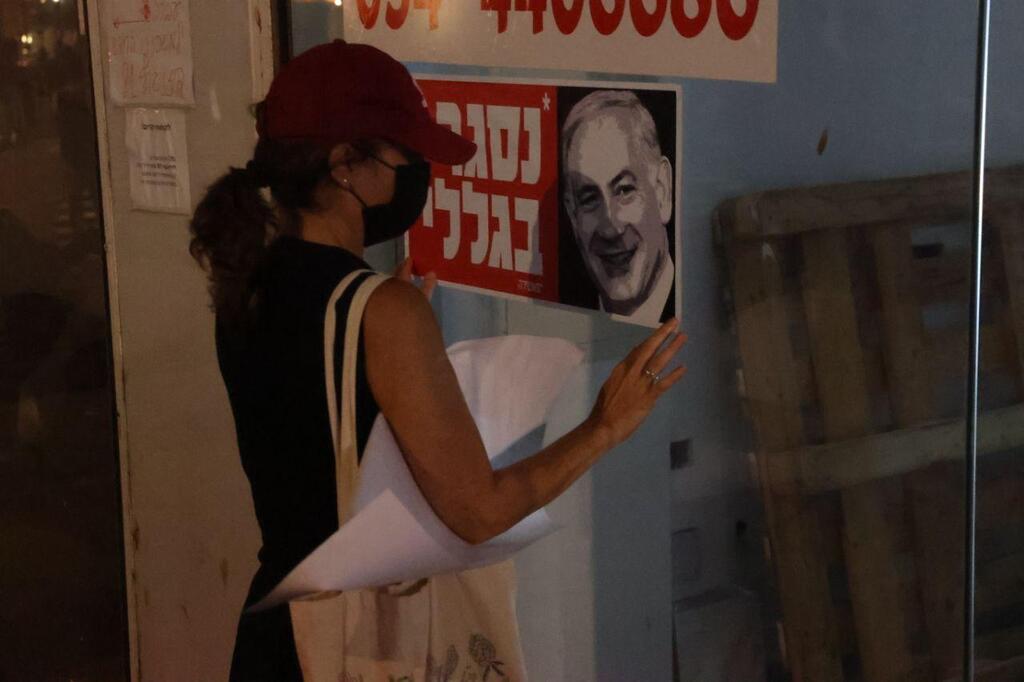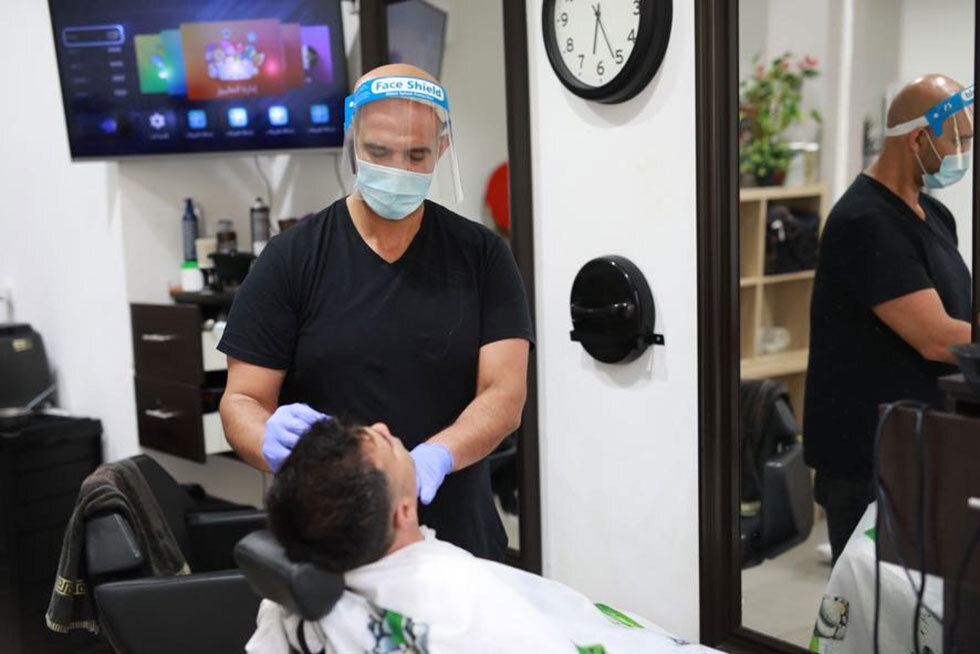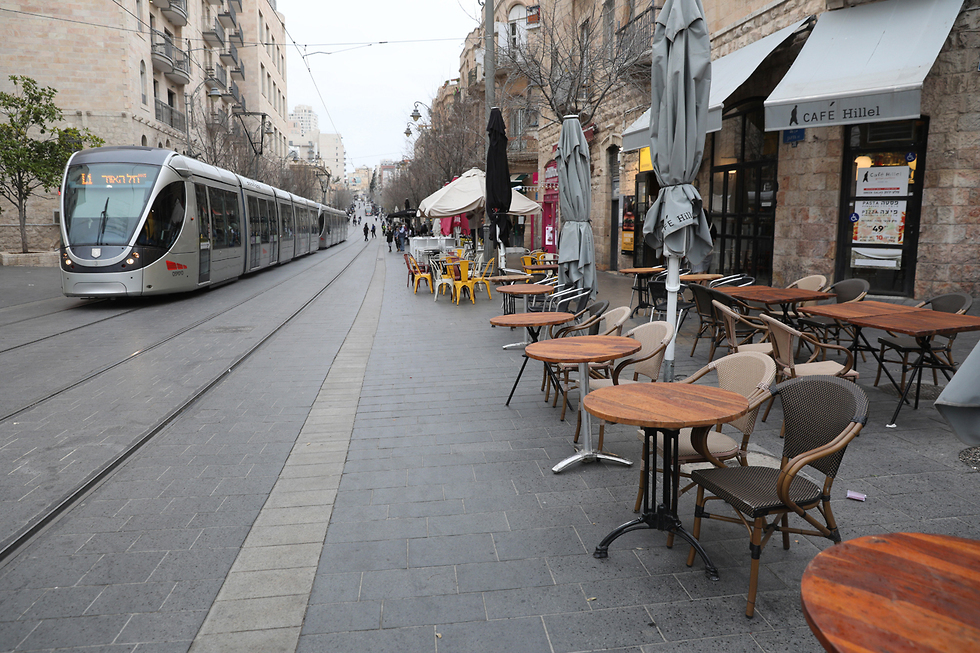Amid a frustratingly steady number of new infections and serious cases, the government announced Wednesday evening that it had indefinitely postponed a meeting that will determine whether to extend the nationwide shutdown imposed for the past five weeks.
Unlike previous closures, the current one is not unanimously supported by all coalition members, with some claiming the public’s refusal to follow instructions, after months of on-again, off-again limitations, makes the ongoing shutdown untenable.
6 View gallery


An abandoned Dizengoff Center in Tel Aviv amid COVID-19 lockdown
(Photo: Moti Kimchi)
Prime Minister Benjamin Netanyahu has insisted on prolonging the blanket restrictions for at least the weekend, fearing a rash of new infections once places of business reopen.
Alternate Prime Minister Benny Gantz, meanwhile, has pointed to the stubbornly high infection rate as proof of the policy’s failure, instead offering to allow a limited reopening combined with stricter enforcement of closure ordinances in highly infected cities.
“It’s a fake lockdown,” Gantz said earlier this week. “We won’t allow it. Either everything is closed or everything is open. The days of deception are over.”
After a week of remaining at or close to a 10% test positivity rate, on Tuesday, an encouraging “only” 9.3% of all coronavirus tests returned positive results. Still, thousands have been infected on a daily basis, with the infection rate again reaching the r=1 threshold Tuesday.
6 View gallery


Woman puts up poster of Prime Minister Benjamin Netanyahu with the inscription 'closed because of me' in front of a shuttered business
(Photo: Moti Kimchi)
Over 4,990 Israelis have died since the pandemic began, 1,500 of them in January alone, easily the deadliest month since the virus’ outbreak.
On Wednesday, the Health Ministry published its proposal for winding down the total shutdown, the third such closure imposed in Israel over the past year.
Health officials are advising the cabinet to extend the measures until Sunday night, after which some businesses, namely those that entail “one on one” service such as barbershops and beauty salons, will be allowed to open, along with some school grades in relatively uninfected towns.
Officials admit that the complete shuttering of the country’s workforce and school system has failed to put a dent in the numbers of serious cases and new infections, citing “coronavirus fatigue” along with the rampant spread of the British and South African variants as the main culprits.
6 View gallery


Barber wearing face mask and gloves attends to a client during COVID-19 pandemic
(Photo: Tal Shahar)
The successive, unrelenting lockdowns, paired with the blatant flouting of emergency government decrees by large swaths of Israeli society, has caused unrest among business owners and parents, eager to get their children back in school and themselves back to work.
While the shutdown, slated to expire on Friday, will probably be extended by several days, major shopping center chains have already promised to open their doors regardless of the government’s decision. Restaurants and other smaller places of business have indicated they too will decide for themselves how to act next week.
“I’ve had enough, they obviously don’t actually care,” an electronics shop owner in central Jerusalem told The Media Line Wednesday. He insisted that he plans to be open for business next week.
“Everybody in this country does whatever they want. Nobody listens [to the government] anymore. How do they expect us to make a living?” he demanded.
6 View gallery


Business owners protest COVID-19 lockdown restrictions in Tel Aviv
(Photo: Moti Kimchi)
Efrat, a mother of two, said she hopes schools will reopen as soon as possible.
“It’s impossible. I understand the concern; we obviously don’t want to endanger ourselves. But there are ways to do it. Why does [the ultra-Orthodox community] get to open everything without being punished? It’s crazy. It’s politics,” she told The Media Line.
Ultra-Orthodox towns and neighborhoods have in recent weeks come under attack for refusing to abide by coronavirus restrictions, with some religious schools and event halls operating regularly.
A restaurant owner in the capital told The Media Line that his place, like most other restaurants, was already violating the government’s orders for weeks.
“We’re technically not allowed to offer a take-away option. But what am I supposed to do when someone lives close by and wants to pick up his food?” he asks rhetorically.
“We tell them to wait across the street, and bring it out to them, so it’s considered a delivery. It’s ridiculous, I know, but they force us to act like this with their impossible rules.”
Despite the unchanging levels of new infections, one undoubtedly bright spot in Israel has been a steep decline in hospitalizations and serious cases among 60+ year-olds over the past few weeks, thanks to Israel’s massive vaccination effort.
Close to 2 million out of a total of 9 million citizens have already received the second of two Pfizer shots, as Israel continues to pace the world in inoculation rates. On Tuesday, Netanyahu said he aims to have 90% of the population aged 50 and up vaccinated by mid-February.
“That will enable us to save lives, to ease the restrictions and open up our economy,” the prime minister explained. “It won’t happen all at once, but gradually, starting next week.”
On Thursday, Israel will open up its vaccination operation to the entire public, ages 16 and up.



